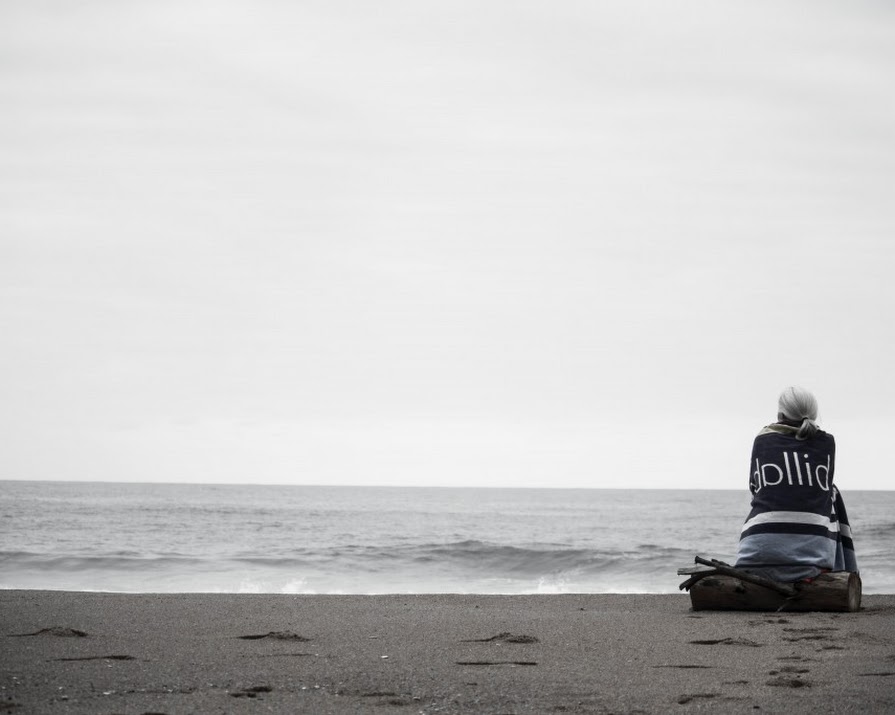
By IMAGE
16th Feb 2017
16th Feb 2017
SOPHIE WHITE tried to stop loving her father. Why? Because the agony of watching his dementia tighten its grip was excruciating. Here, she describes the enduring and peculiar pain of watching someone you love slowly die.
Late last year, I nearly got the call. That call that all of us who dwell in the protracted dance of death long for. Come to the hospital, he may not last the night. I didn’t dare to hope. That sounds messed up, right? I was lying in bed feeding my two-day-old son. In that moment, I felt trapped, caught between two opposing but inevitable states: we are born and we will die. In my arms, the sweetest thing – a new baby, and in my mouth that revolting bouillon-flavoured stench I’ve come to associate with creeping death. I made my way to my father’s supposed deathbed at four in the morning.
I was limping, crippled by my recent delivery, and desperately hoping to be delivered from the pain of loving a dying person. He didn’t die.
This is love, it is excruciating and it is exquisite. I tried to stop loving my father. One day, years earlier, when my father – in a moment of rare clarity that Alzheimer’s allowed him – cried bewildered, frightened tears, I put my arms around him and hardened myself to his suffering. ?I am a monster,? I think.
I look at his picture and try to remember who he was. I try to decide who or what he is now. Even just the tenses trouble me. Past tense or present. No part of him is present for sure. And it seems accurate to say that he was funny and he was clever and he was handsome, because he was. And he is not any of these things any more, and he absolutely never will be again.
Grief is a complex state; my grief is even more complex by the maddening fact that the object of my grief won’t just get on with dying. I stare at my father’s deformed face and think, ?Why can’t you die so that I can get on with remembering you fondly??
Am I a monster?
All of this is love. Love hurts. That phrase seems twee until you sit and watch someone you love die. Then you know it’s twee, but you also know that it’s true.
Every week there’s a new viral video, a neat one minute package of feel-good catharsis that allows us to believe in love’s triumph over adversity. But love cannot be edited and packaged and made a spectacle of.
I spoke to Helena, whose husband Declan sustained a serious spinal injury after a fall from a third-floor balcony in his sleep five years ago. I thought perhaps she could explain something to me about the enduring nature of love.
?At the worst times, I thought it would have been easier for me if he had died,? she says, musing on the complexities of grieving someone who is still living, but who is irrevocably altered. ?There’s a standard procedure for grief, not for these kinds of things – that was the most isolating thing for me; I felt nobody understood me.?
Just one week before the accident, Helena had suffered a miscarriage, and now she was envisaging a life that seemed too cruel to contemplate. ?I thought I’d never find joy in anything again, that I’d never look at the world in the same way again.? Listening to Helena talk about the aftershocks of that lifechanging moment, I am struck by her nerve, not just in surviving the blunt-force trauma of Declan’s spinal injury, but in speaking so frankly on the subject. ?My head was messed up,? recalls Helena. ?While Declan was very focused on his next goal and his next target in rehabilitation, I couldn’t do normal.
I thought I’d never do normal again.? Counselling and time saw the couple work their way back to a new normal, and two years after the accident, the couple discovered they were expecting twins. ?When I found out, I didn’t think about how hard it would be or anything. I was just so over the moon that we were going to have a family.? Now awaiting the arrival of their third child, Helena reflects on five years of profound pain and unexpected joy.
?In the beginning, all I saw was the negative part of the change – all I had to give up. But now I can see we gained a lot too. It saved our marriage. I have a new respect and admiration for Declan, in his strength of character, how he has become a great father and partner. ?The early stages of a relationship are about attraction and having a connection with someone, but enduring love is about being able to face things together.?
For their last anniversary, Helena put on their wedding DVD to show the twins, Theon and Asha, but Helena found she couldn’t watch. ?I look at those people now and think, I don’t know them. I do not recognise those people at all. It would’ve upset me a few years ago, and it still does. I still miss those people, but we’re different now? Maybe we’re better.?
I look at pictures of my own wedding day and see those unfamiliar people Helena’s talking about: me, my mother, and my father, and ?can’t help but see it as us and him. As my dad has slowly ebbed away from us, my relationship with my mother has intensified – and it was pretty intense to begin with. I have seen her endure a violent loss. She is the strongest person I know – this is not always necessarily a good thing for me, her only daughter – do not get her started on the state of my house or my eating habits, she can go all day in a fight. Maybe if we weren’t facing this bleak thing together, we wouldn’t be as close. She says frequently, ?If I ever get like this, you know what to do.? To which I reply, ?You know how much I would love to kill you, but I’m not going to jail for you.? I don’t think everyone would understand the things we find ourselves laughing at, but finding absurdity in the banal horror of illness is just what we do.
Talking to Helena makes me think of the good that’s come into my life from loving a dying man. It’s not something I’d given any thought to really. I think I’d just assumed there was no good per se . However, a couple of weeks ago, as I sat rubbing my dad’s hands, drinking coffee, bitching with my mother as she held my younger son – the newborn who looked every bit the old man that my dad now looks, even though he’s only 64 – I recalled Helena’s words about facing life together.
Love can transform us, it can save us, it can even bore us, and through it all, love endures.
This article originally appeared in the February issue of IMAGE magazine, on shelves nationwide now.?























